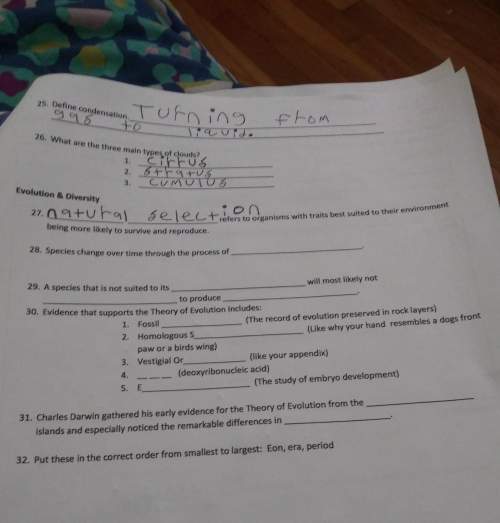What happens to matter when it reaches absolute zero?
A. Its particles speed up.
O B. Its par...

Physics, 13.05.2021 02:10, luvcherie18
What happens to matter when it reaches absolute zero?
A. Its particles speed up.
O B. Its particles have no kinetic energy.
O C. Its particles vibrate slightly.
D. Its particles gain kinetic energy.

Answers: 2
Other questions on the subject: Physics

Physics, 21.06.2019 22:00, baidentheodore617
Let v1, v2, w be three linearly independent vectors in r 3 . that is, they do not all lie on the same plane. for each of the following (infinite) set of vectors, carefully sketch it in r 3 , and determine whether or not it is a vector space (i. e., a subspace of r 3 ). explain your reasoning
Answers: 2

Physics, 22.06.2019 11:20, puppylove899
Wave functions describe orbitals in a hydrogen atom. each function is characterized by 3 quantum numbers: n, l, and ml. if the value of n = 2: the quantum number l can have values from to . the total number of orbitals possible at the n = 2 energy level is .
Answers: 3

Physics, 22.06.2019 19:00, freddhendrickss
The built in flash in a compact camera is usally capable of giving correct exsposure for distance up to how many meters?
Answers: 1

Physics, 22.06.2019 19:30, ayoismeisjjjjuan
Which type of energy would have nothing to do with ironing clothes? a. heat b. chemical c. electrical d. mechanical
Answers: 1
Do you know the correct answer?
Questions in other subjects:


Advanced Placement (AP), 28.04.2021 18:50




Mathematics, 28.04.2021 18:50



Mathematics, 28.04.2021 18:50







